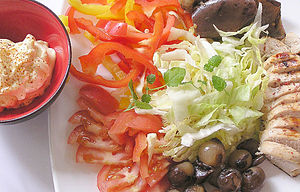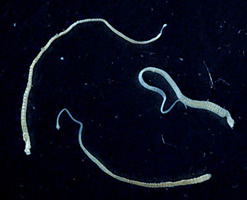
I was recently asked, under the anonymity of a Google comment, how I can be into herbs and health when I am clearly fat, I’m sure the question has been let unasked a lot more than it was voiced. And my first instinct was to get all defensive: the great American herbalist Michael Moore was fat. The great Annishinabe medicine woman and ethnobotanist Keewaydinoquay Peschel was fat. What does fat on your body have to do with what you know, anyway?
The short answer is that once you are fat, unless you are slightly fat or you had a short term weight gain, it is incredibly difficult to reverse. You can lose weight, but it doesn’t last. You can do quite a bit to stay healthy via your diet and lifestyle, but you may end up healthy and fat.
I’ve been fat since age 5, with a short break during my late teens and 20s when I felt like and metabolically was an underweight fat person. Maybe it was my grandmother’s Native genes clashing with a 1960s Standard American Diet- I took after her rather than my parents. Maybe it was a reaction (mine? my parents?) from nearly dying as an infant from weight loss due to digestive problems, although I didn’t notice them pushing food. Perhaps I caught one of those obesity-promoting adenoviruses. Maybe it was all those fattening antibiotics I had for ear infections before anyone considered that dairy might be the culprit. Perhaps my body had to sequester exposures to pesticides painted on the walls at the cabin. Maybe I overate when they pulled me out of my sweet smelling acacia tree to send me to a dismal school and my happiness quotient fell. In any event I was on Metrecal, the Slimfast of the day, by the first grade, embarrassed as we discussed our breakfasts in health class. Junior high was torture, where I was relegated to the few chubette clothes available, until I discovered Guatemalan skirts and peasant blouses. I focused on learning instead of socializing.
I had by this time become quite expert on calories, carbohydrates and food exchanges, not to mention setpoints and portion sizes. My doctors had suggested everything from locking cupboards, to liquid meals to diet pills that left me wired, but I believed there might be better ways. I was under orders to lose weight by any means possible. I biked, swam in the summer, lived on a hill so steep the school bus couldn’t drive up so I walked it instead, went hiking in the woods behind our home, and had daily physical education classes taught by self-hating drill sergeants, I wasn’t exactly a couch potato although I preferred reading, acting in school plays and establishing an underground school newspaper to afterschool sports.
I finally lost weight when I left home, had a new start, and went on a zero carb diet (in Italy, yet.) I kept most of it off when I got home because I lived a mile’s walk from campus and took five 1-2 hour dance classes a week, blessedly subsidized by parents and low tuition. And as a young single who chose a bike rather than a car, I swam daily and went scubadiving on weekends, so it only slowly crept back. But the job ended, I moved to New York where work hours were long, picked up an inactive husband who preferred restaurants to Appalachian trail hikes and saw my weight skyrocket with the hormonal changes of pregnancy. Periods of stress drove my cortisol through the roof. By the time my children were born I was over a threshold where I could lose weight without getting sick or exercise without injury. Not that I didn’t try: Weight Watchers, Optifast, vegan diet, vegetarian diet, Atkins diet, metabolic bump diets, macrobiotic diet, fermented foods, paleo diet, Paul Bergner’s insulin resistance class, hypnosis, therapists, personal trainers, one- hour exercise sessions that didn’t work, two- hour exercise sessions that burned fat but left me too exhausted to work. There was a lot of good stuff in many of those plans. I lost some weight. And I gained everything back.
Was I perfect? Of course not. As a teen I had justified saving calories from eggs for ice cream (after all, a calorie is a calorie isn’t it?) I have caught myself eating emotionally, but it was aberrant enough to stand out and my thin friends do the same on occasion. Portion size may be an issue, but the fat cells themselves call out constantly to eat more, something not true of thinner people. Occasionally I go on tiramisu jaunts. I go between wondering if I am gluten-sensitive or just carb-sensitive and go in and out of drinking milk.
The International Journal of Obesity says that of people who lose 75 or more pounds, 95-98% gain back every pound within 3 years, 2/3 of them within the first year. Even Oprah who can afford cooks, a personal trainer and all the backup possible gains it back. People who keep weight off are a statistical aberration, unless the gain was transient. Younger men who haven’t been obese long and are willing to, say, become exercise instructors or indulge in full time physical labor stand the best chance of joining that elusive 2-5%. as do people who spend the rest of their lives monitoring every mouthful and every bit of exercise. The National Weight Control Registry tracks strategies and data on those who lose at least 33kg and keep it off or 5 years. Even they say that only 20% of dieters are successful at a 10% weight loss for over one year. You have to make your life about keeping weight off and maybe change your work to something physical all day.

I haven’t tried everything. Tapeworms, for instance seemed to work for Maria Callas, but I’m squeamish and like my B vitamins. Nor have I tried surgery, although I did check it out. The painful death of my pharmacist after gastric bypass surgery destroyed any question I might have had about a procedure that creeps me out on the face of it. (What colonizes that empty length of intestine cut off by the surgery?) Two of my obese patients had the surgery and are still fat- and one lost her spleen during the operation. And while a lap band seems less intrusive, I watched one patient struggle for a year with infected ports. For a cool $25,000 plus extra surgery for the sagging skin you get an 80% complication rate and 5 years of becoming thinner before you gain it back. Even if you get thin, you are metabolically fat compared to an always thin person, with every deflated cell urging you to eat at any moment. And the yo yo is harder on your heart and toxin release harder on your brain than just staying fat. Thanks, I’ll work on health at any size.
The truth is, despite Joy Nash’s wonderful YouTube Fat Rants, fat is a matter of shame in our society. We don’t criticize the selfish or the vain nearly as much as the fat. Obesity is treated as a character flaw instead of just extra avoirdupois. It is extra flesh not failure incarnate. Heck we have a worldwide epidemic of obese 6 month olds who probably eat and move much like infants always have, so it makes no sense to blame. And we need to get real about it.

I have no question that if I had bypass surgery and lost weight that people would congratulate me on becoming healthier and it might well help me get a teaching job or keep patients. It would not be true. My digestion would be permanently ruined, I’d weaken the muscle in my heart along with all the other muscles (non ketogenic weight loss lowers your muscle mass and the heart is mostly muscle) and I would have scars through my meridians. To be fair my feet and knees would feel better and I might have more energy during the low weight phase, but the assumption of health would be falsely generalized. It is possible that I would live up to 3 years longer, although those figures were not derived by comparing fat and formerly fat people and they certainly didn’t sort out the physically fit fat people for comparison. We aren’t talking decades of life. Besides the most recent word is that thin people with big bellies die sooner than the obese.
What I can do, even if the fat is intractable, is something about is my health and fitness. A low carbohydrate diet including good fats, green vegetables, seaweeds, low glycemic flavonoid-rich fruits and clean protein will keep my blood sugar down and normalize my cholesterol and triglycerides. Exercise will keep my circulation and lung function intact. Weight training will build muscle mass. Yoga, qigong, MELT or Pilates will stretch my muscles and strengthen my core. Regular acupuncture, massage or craniosacral balancing will keep me centered and enough sleep will allow restoration.
Most important I love the work I do and would rather be fat than work at a different, more physical job or spend an additional hour at the gym when I could be spending time figuring out how to affect patients with difficult problems that don’t lead to easy resolution. While my preference for treating zebras, as difficult cases are called, may not make me thin or rich, at least I learn things that help others.
So what have I learned about weight loss?
- Statistics on health and Body Mass lump couch potatoes together with the fit fat people. You don’t want to be a couch potato. If you work out regularly and eat well, your main problems will be structural.
- Overweight people react differently to dieting strategies than do obese people. Formerly fat people are metabolically quite different than always thin people of the same weight. Don’t assume that everyone can do the same thing to either lose weight or stay thin.
- Most fat people do best on low carbohydrate diets, without appreciable grains. Even if you might have done well with grains pre-obesity, your metabolism is probably damaged by long term weight gain. Go Paleo, for good.
- If you want to lose weight, you need to restrict food even on a low carb diet. You may be too satisfied to overeat, but many fat people have lost touch with their body’s signals.
- Ketosis (not the dangerous ketoacidosis) metabolically causes you to lose fat rather than muscle, provided that you don’t overeat. There are entire civilizations in ketosis (traditional Inuit, Bantu, hunter-gathers) who are not in active weight loss. Nonetheless I know of no better start for fat burning.
- To start a ketogenic diet, mineralize yourself with magnesium, potassium, iodine, trace minerals, sea vegetables and kale. Otherwise the first two weeks while you are transitioning from glucose-burning to ketone (fat) burning will be hell. Which is probably why Atkins allowed free consumption of fats during that induction period.
- For a long term diet, a food plan that hovers between ketosis and low carb just above ketosis is probably the best. Green vegetables and clean fish or pasture-raised meat, eggs from outdoor chickens and small amounts of berries, yellow fruits and vegetables or pickled root vegetables should be the basis of your diet.
- This actually can be done with a vegetarian diet but will be a lot more interesting with animal protein. The infamous low glycemic vegetarian diet that beat the ADA diet for diabetes was basically vegetarian Atkins.
- Weight gain after periods of intense stress may be more benign than other self-medication (although others may not act as if it is.) The weight won’t necessarily go away when the stress does or just because you take up yoga, even Birkram.
- There is a threshold beyond which losing weight is close to impossible without extraordinary changes, so don’t get there. Overweight is better than obese.
- The kind of extraordinary changes that allow weight loss include moving away from family and friends who may reinforce inactivity or stress, changing to a very physical profession, radically increasing exercise and changing the kind of food you need and a spiritual renewal that doesn’t involve lots of sitting or reading. Move to a 5th floor walk-up or work a half hours walk from home to build in exercise. You also need to make peace with monitoring everything you eat, monitoring exercise and monitoring weight.
- Some people become fat in reaction to sexual abuse, negative feedback from family members, dissatisfaction with a lack of purpose, or to hide sources of shame. Others pick up a sense of shame after they become fat. Continued emotional eating may or may not play a part in this reaction. Getting rid of the shame is essential to your well-being, whether or not it converts to being thin.
- If you suddenly gain weight, loose it as soon as possible so that your setpoint weight doesn’t increase.
- When you take medications like steroids, antidepressants, antipsychotics, long term antibiotics or insulin you will probably gain weight, often substantial amounts. Statins can cause diabetes, but are pushed on people with insulin resistance. It may be worthwhile, but consider the effect in evaluating your course of treatment and also whether protective lifestyle changes are realistic.
- Most benefits of weight loss happen in the first 10%.
- After 10% weight loss, your setpoint tries like crazy to make you regain the lost weight.
- While some people can, I have never lost weight from exercise alone but I also don’t lose significantly without exercise, including interval aerobics, weight training and stretching. Don’t skip the stretching, because heavy weight predisposes you to injury if your muscles are in the wrong place.

Chickweed - If you lose weight, you will free toxins locked up in your fat which may be redistributed in your organs. Take detoxifying herbs like dandelion, chickweed, Oregon grape, triphala or coptis and seaweeds to tie them up. Getting sick will derail your exercise program.
- Extra weight is especially hard on your feet, hips and knees. A heel spur or knee problems will also derail exercise. Get good shoes, watch Katy Bowman’s biodynamic body DVDs, stand on little balls to massage the small areas of your feet, vary your exercise and be proactive about foot, leg and hip care.
- Modify exercises to function like they should, not to look like what thin people do. Maybe that means your toe touch only goes to your thighs. Maybe your push-up is against a wall, not the floor. And you need a total substitute for the plough asana if your bust or belly won’t let you breathe.
- Minerals are essential, especially magnesium which is no longer in soils in appreciable quantity, iodine, potassium, chromium and trace vegetables. Seaweeds are the main food source of minerals. Additionally octacosanol will bring down triglycerides.
- If your endocrine system is unbalanced, try adaptogen herbs like rhodiola, ashwaganda, ginseng and eleuthero.
- Weight loss herbs basically fall into a few categories: detoxification, bulk laxatives, liver support, starch blockers, fat blockers and thermogenic herbs. Studies are minimal and are often done on small groups of slightly overweight people.
- Thermogenic (heating) herbs like cayenne are fine if you run cold. Otherwise go to cooler circulatory herbs like turmeric, frankincense, myrrh or chuanxiong. A bit of pepper, long pepper (pipalli) or prickly ash will help the herbs to penetrate and won’t be too hot in small doses.
- Starch blockers, from phaseolus beans usually give you gas while you don’t assimilate the starch. Just stay away from starch.
- Liver herbs like dandelion leaf, green coffee extract, Oregon grape, berberis and milk thistle will help you convert fat and get rid of toxins that were locked up in your fat. Also see detoxification herbs.
- Fat blockers are basically liver herbs that cause you to dump. The pharmaceutical version Olestra (orlistat) can cause explosive diarrhea and deplete you of fat-soluble vitamins and EFAs, but does cause your body to dump toxins. A less intensive intervention using 7 fat free Pringles a day got rid of both persistent organic pollutants like chlorohexabenzene and fat in some studies. Pringles of any sort are not food, but personal experience using fake fats to get rid of artificial toxins were not notably successful.
- The only laxatives I would suggest are triphala, a nourishing and detoxifying group of fruits, and if you are constipated, psyllium, flax or cannabis seeds (sterilized and legal in Chinese medicine stores.) If it is really bad one dose of senna, cascara sagrada, aloes, or da huang (rhubarb), but only for the first bowel movement. Eat seaweeds and okra. Take probiotics or probiotic foods. Drink lots of water.
- Did I say drink lots of water? And yes, some of that can be coffee or teas. Best to avoid diet drinks, even the fairly benign stevia-sweetened ones. Or save them for special occasions. Taste can trigger your insulin secretion.
- Go for periods of time without appreciable carbs, like between dinner and lunch with salmon salad or a veggie frittata for breakfast. When your blood insulin goes up you can’t burn fat or make muscle.
- Don’t graze. See above for why.
- Eat before exercise, which brings your insulin curve back down. If you eat or swill a sports drink afterwards, you defeat the metabolic effect of exercise. (Marathoners or Iron Men are an exception and aren’t losing weight, but if you have read this far it probably doesn’t apply to you!)
- Exercise after eating, even a short spin around the block.
- Take pride in what you do well, how you affect the world and in who you are. There will always be people willing to see you as a size rather than a person. Don’t fall for their shortsightedness.
See also:
Chemicals and Obesity: What if if isn’t all your fault?
Why A Parasite Cleanse Can Make You Worse
Probiotics and Probiotic Foods


